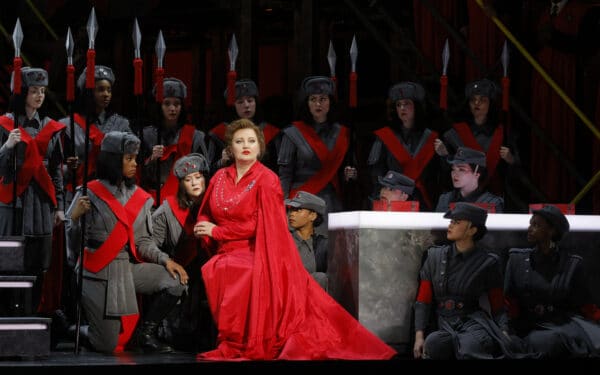Have you ever wondered why General Franco didn’t join the Axis powers in 1940, when the Nazis had overrun most of Europe and Hitler had yet to take the disastrous decision to invade the Soviet Union?
For Franco, the prize would have been considerable. He would have repaid Hitler in full for his help in the Civil War and been given a seat at the table of the New World Order. With France defeated and Britain reduced to reinforcing its south coast beaches, Spain was promised a larger empire in Africa and a significant share of the booty that is the inevitable accompaniment of war.
Above all, and as a Christmas present for the Spanish people, exhausted after three years of slaughter, the British crown colony of Gibraltar would have been restored to la Madre Patria – the motherland.
But it didn’t happen. Franco said no. The Rock remained in British hands, providing a base for the Royal Navy’s Force H, ensuring the re-supply of Montgomery’s Eighth Army in North Africa, and acting as the key staging post for Operation Torch, the first action in the war by American troops, in 1942.
To find out why “Operation Felix” – the German codename for the Wehrmacht’s planned assault – failed (with allowances for a certain amount of fictional embroidery), I invite readers of Reaction to read my new novel, Franco’s Map.
Hitler was in no doubt of the importance of the action he proposed. This was how he put it in a personal memo sent to the Spanish dictator:
- War will decide future of Europe. Spain can help put England out of the Mediterranean.
- Spanish participation must begin with the expulsion of the British from Gibraltar. Capture of the Rock itself. Germany will furnish assault troops and weapons under Spanish command.
- With this done, Spanish Mediterranean coast no longer threatened.
- England [now] in position to operate against Spanish coast. Defense of coast difficult. Better to protect it by dive bombers than by heavy coastal batteries.
- The entry of Spain will serve to stress the hopelessness of continuing the war and force England to abandon her unjustifiable ambitions.
Franco was tempted. He thought long and hard. But in the end he rebuffed Hitler’s overtures. Reichsmarschall Hermann Göring, who had hoped to lead the attack himself, told his American interrogators in 1945 that Germany’s failure to take Gibraltar, and to attack Russia instead, was “one of the major mistakes of the war”.
I gained my first inkling into the crisis when reading The World at Night, Alan Furst’s brilliant novel of life in occupied Paris. One of his characters, en route to Fascist Spain, mentions “talk” of action by the Nazis that threatens the British in Gibraltar.
I began to read up on the subject. The number of books about the Spanish Civil War is legion, but nowhere at the time did I find more than a page here or a page there that explained why the Caudillo – at the time in thrall to both Hitler and Mussolini – felt able to defy the Führer. It all seemed to come down to his concerns over shortages of food and fuel, combined with a shrewd appreciation of Britain’s capacity to come back from adversity. There were also references to bribes paid on Churchill’s orders to various Spanish generals, organised by the British ambassador to Madrid, Sir Samuel Hoare.
Yes, but what Hitler was dangling before the vain and ambitious little Spaniard was a chance to become a major player in the most dramatic events of the twentieth century. Surely there had to be more to Franco’s refusal than the feeling that Spain couldn’t afford it or that his armed forces commanders were on the take.
My novel is based on long research and the course of actual events, including the arrival in Madrid of the Duke and Duchess of Windsor and Britain’s sinking of the French naval squadron in Mers-El-Kebir. It puts meat, and muscle, on the bare bones of the story.
But, like any complex thriller – and this one exceeds 500 pages – Franco’s Map is about much else as well. Its three protagonists, brought together by necessity, come from very different backgrounds. Charles Bramall, a young army officer, who as a journalist had spent three years covering the Spanish conflict, is a scion of the Protestant Ascendancy in Ireland, whose family was driven out of the new Irish Republic in 1922. Edward Romero is a maverick, half-Spanish Dubliner, who fought for the IRA before joining the International Brigades. He burns with a hatred of the British Empire. Isabel Ortega is the wilful daughter of one of Spain’s highest government officials. As a Spanish patriot, she is at odds with her father over the direction in which the Falange has taken her country.
The three face impossible odds. Can they overcome their differences, including the legacy of a terrible murder in Ireland, in time to stop Gibraltar from falling to the Nazis?
Free, signed copies of Franco’s Map (published by Conrad Press, £9.99; £4.50 on Kindle) will be sent to the first ten readers who subscribe to Reaction over the next five days. Otherwise, please order from Amazon or Waterstones online, or in Ireland from either Amazon or Kenny’s online bookshop, kennys.ie.
Walter Ellis, a former correspondent for the Financial Times, Sunday Times and Irish Times, writes about France and other subjects for Reaction.





